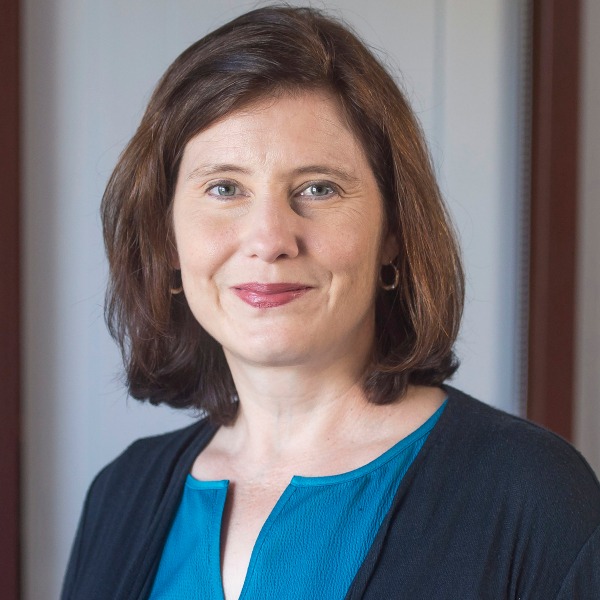This week, fact-checking journalists from around the world converge in Rio de Janeiro for GlobalFact 2025, our annual conference. We arrive at a moment that is deeply challenging for all of us who care about truth, reasoned argument, and intellectual integrity.
A preference for truth is a universal human value. People have an innate desire for truth and dislike of liars. All the world’s religions urge truthfulness: We are told we shall not bear false witness, the truth shall set us free, truthfulness leads to righteousness, and truth alone triumphs.
For years now, we’ve witnessed societal shifts that threaten the foundation of informed self-government. Democracies seem less stable. There’s widespread disillusionment with civic life and frustration with government. Social media, rather than connecting us, contribute to a culture of division and distraction. Political propaganda and divisive attacks are common in countries as varied as Brazil, the United States, the Philippines, Serbia, South Korea, and Georgia. Our politics is no longer a conversation among citizens with different opinions, but a contested battle between enemies seeking total victory.
This week, fact-checking journalists from around the world converge in Rio de Janeiro for GlobalFact 2025, our annual conference. We arrive at a moment that is deeply challenging for all of us who care about truth, reasoned argument, and intellectual integrity.
One of our particular challenges is that propagandists and governments have weaponized claims of free speech to attack fact-checkers as censors. Based on those attacks, technology platforms have justified a retreat from reasonable expectations that these companies prevent conspiracy theories, false attacks on minority groups, and financial scams from going viral. Big tech’s attitude is that users should fact-check everything themselves, every time they go online. Such expectations are not only unrealistic but cruel, doing nothing to help people navigate their online lives.
This retreat fundamentally misunderstands fact-checking and free speech
Beyond the social media retreat, artificial intelligence presents new challenges. While I recognize AI’s potential and use these tools myself, they have significant flaws. On their own, these tools “hallucinate” — a pleasant way of saying they make things up. If they were human beings, we would say they lie. Without regular human oversight and big improvements in overall accuracy, AI will amplify rather than solve our information crisis. AI companies should be working with fact-checking organizations now to create reliable, accurate systems. Though some will claim that fact-checkers are out of favor, public polling confirms people want technology to reduce false and harmful content.
I suspect that people so strongly favor truth because they know that freedom of expression depends on access to accurate information. One of the best novels to ever address this was 1984, by George Orwell, which remains shockingly relevant today. In the novel, the Party controls all information and seeks to forbid even thoughts that violate their narrative. Genuine dissent becomes impossible because people lack the factual foundation to recognize alternatives.
When information is distorted or suppressed, people lose the ability to form authentic opinions — they can only choose between pre-selected falsehoods. And when people are inundated with competing claims without any assurance of factuality, they become confused and cynical, doubting truth can even be known.
But there is objective truth about factual matters. Sometimes the facts can’t be documented, but they do have an independent existence that can’t be fictionalized. Many facts can be known, proven, and often replicated by honest investigators. That’s the work of fact-checkers, and fighting cynicism about knowledge itself is one of our most important tasks.
The strongest institutions in our society — governments, political parties, or global corporations — must be held accountable to truth and evidence. Independent journalism and courts often stand as checks here, and that’s why would-be dictators attack media and courts first when consolidating power. Companies ignore complaints from ordinary people, but quickly correct actions when faced with news stories or lawsuits.
Yet journalism faces unprecedented pressures. When the U.S. government ended USAID funding earlier this year, it eliminated important support for fact-checking journalists in Eastern Europe, Africa, and Latin America. Technology companies’ retreat from fact-checking partnerships compounds this blow. Pre-internet advertising models have collapsed, and online models provide fewer resources. Sustainable, consistent journalism is democracy’s lifeline, yet the enterprise of knowledge-seeking faces sustained assault.
Lire :
These institutional failures make this work deeply personal for me. My father was born in Yugoslavia after World War II. His family tried to reach the United States but was turned away, so they went to Venezuela instead. He grew up speaking Spanish before coming to the United States for university, where he met my mother, an American of French and Spanish descent from rural Louisiana. She taught me that knowledge and learning are keys to a good life — for personal improvement and making the world better. My father also warned me of governments seeking power over vulnerable individuals. He spoke of lies told repeatedly so that small groups of men could conserve power and wealth, of jails and courts used not for justice but to intimidate and silence. Democracy was the answer, he said — a system of checks and balances restraining human passions and greed for the benefit of all.
His warnings feel prophetic today. I can see people are suspicious of institutions and that independent journalists can be viewed as out-of-touch elites. That’s when we must reexamine our approaches and language, making our enduring values come alive for a new moment.
Lire :
Are we lecturing our audience, telling them what information is good for them? Or are we in dialogue, hearing their concerns and explaining our methods? Are we writing obligatory stories with repetitive language, or seeking new, compelling narratives that spark engagement? Are we developing language that creates connections rather than alienates? Are we willing to take risks, even risk failing, and improve our impact through iteration?
The future of informed democracy rests on our ability to evolve methods while holding firm to values. We must develop engaging approaches to fact-checking that draw people in. We must seize opportunities to make truth compelling and accessible. And we must move beyond defensive rhetoric to emphasize our true purpose: supporting the public and promoting human knowledge.
When our work does that, it stays true to those universal precepts. The truth will set us free, truthfulness leads to righteousness, and truth alone triumphs.
Angie Drobnic Holan is director of the International Fact-Checking Network at the Poynter Institute, a global nonprofit that supports the relevance and value of journalism. Before joining the IFCN, she served as editor-in-chief of PolitiFact and was a reporter on the PolitiFact team that won the 2009 Pulitzer Prize.
Published by Poynter



0 commentaires